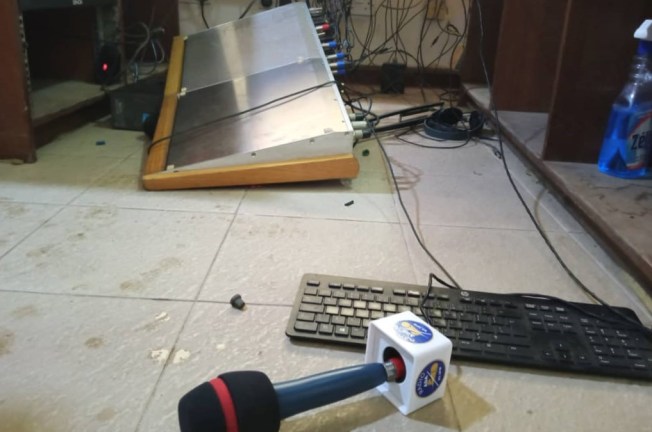This week marked the fourth anniversary of the murder of Ghanaian journalist Ahmed Hussein-Suale Divela, who was gunned down by unidentified men months after threats by a local politician. Despite Ghanaian leaders’ promises of justice, a 2019 framework for improved relations and the safety of journalists, police assurances of progress, and two arrests, nobody has been tried or convicted in the journalist’s murder.
Meanwhile, crimes against journalists continue. Since Divela’s murder, CPJ’s research shows that:
- At least 30 other Ghanaian journalists and media workers have faced abuses in connection with their work, including attacks, threats, and arrests
- 14 journalists and media workers have been physically attacked in relation to their work—nine of them by members of Ghana’s police or military. Officials involved were rarely disciplined, and when action was taken, journalists said it was insufficient
- 17 Ghanaian journalists and media workers have been detained
- At least 10 journalists have received written or verbal threats in connection with their work
- The offices of at least three private broadcasters – Benya FM, Zylofon FM, and Radio Ada FM – have been vandalized
The broad lack of accountability has resulted in a tendency toward self-censorship among members of the media. Read more about the case, in addition to the cases of 30 other journalists who have faced abuses for their work since Divela’s murder, and what, if anything, authorities have done to respond in CPJ’s feature.
Separately, on Tuesday, CPJ will release our annual census of journalists killed in 2022. Please email press@cpj.org to request advance copies of the report; CPJ experts are also available for interviews.
- Psychosocial safety: Covering gun violence in your community
- At least 40 journalists targeted amid Brazil capital riot and aftermath
- Belarusian journalist Yulia Mudreuskaya sentenced to 1.5 years in prison colony; Belarus court sentences 2 journalists to years of house arrest
- Turkish journalist Sezgin Kartal arrested for alleged PKK membership
- Pakistani journalist Shahid Aslam arrested in leak investigation
- Authorities in Tigray release 3 journalists, 2 others remain in detention
- Zambian journalist Evans Liyali assaulted by soccer players, team employees
Spotlight
The Hold The Line Coalition—which comprises more than 80 organizations worldwide, including CPJ—welcomed the acquittal of Maria Ressa and Rappler of tax evasion in four of seven cases brought by the government and called for all remaining cases to be closed.
If they had failed to defend the charges, Ressa could have gone to jail for up to 34 years, and Rappler would have faced a substantial fine.
“This verdict indicates that it is possible for President Ferdinand Marcos Jr. to hit reset on his predecessors’ vast campaign of media repression,” said the Hold The Line Coalition Steering Committee.
“We hope we are seeing the beginning of an end to the previous administration’s strategy to instrumentalize the courts as a means to undermine independent news organizations and damage journalists’ credibility. As an immediate next step, we call for all remaining cases against Rappler and Ressa to be closed and their constant persecution to be stopped once and for all.”
Ressa, her colleagues, and Rappler face a sustained campaign of legal persecution and online violence, with 23 individual cases opened by the State against them since 2018. Ressa could face close to seven years in prison on a previous conviction for criminal cyber libel, which is currently in its last cycle of appeal before the Philippine Supreme Court—meaning she could still face a possible imminent prison sentence.
- Abuse of journalists shows how ugly our civil discourse has become — Paula Penfold, RNZ
- Where’s Ghana’s Attorney General going with this curveball on the Ahmed Suale murder? — Media Foundation for West Africa
- Kazakhstan’s media, journalists under pressure — Paolo Sorbello, The Diplomat
- Facing death threats, Indian journalist Rana Ayyub says world must stand up for press freedom — Padraig Moran, CBC Radio
